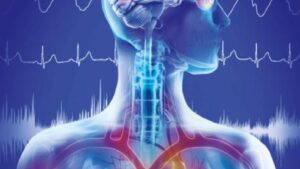Check out this training opportunity on June 09, 2021 on deep learning & EEG by IPEG President, Dr. Sebastian Olbrich.
Registration details can be found below at the following link: https://register.gotowebinar.com/register/1832313453075310608

Check out this training opportunity on June 09, 2021 on deep learning & EEG by IPEG President, Dr. Sebastian Olbrich.
Registration details can be found below at the following link: https://register.gotowebinar.com/register/1832313453075310608

LSD is in the spotlight again. Recent trials are assessing the effectiveness of LSD as an antidepressant or an adjunctive drug in psychotherapy. However, surprisingly little is known on the effects of LSD on the autonomic nervous system in humans. This study sheds light on the association between LSD-related subjective experiences and autonomic sympathetic and parasympathetic function. Maybe it will be possible to stratify patients according to their electrophysiological profile before allocating them into a LSD treatment.

The vice president and president of IPEG have published this study as a collaboration between Charles University, Prague, and the University of Zurich. They show that heart rate and heart rate variability related parameters might predict outcomes of ketamine infusions for treating depression. Electrophysiology may play an important role in the search for predictive biomarkers of ketamine response. https://www.sciencedirect.com/science
Evaluation of a 12-Electrode Cortical EEG System
The team from the National Institute of Mental Health, Czech Republic, has localized EEG sources in rat’s brain cortical and subcortical regions using data from a computational model, physical phantom and from real 12-electrode rat cortical EEG recordings. This work establishes a strong basis for a reliable electrical source imaging methodology for preclinical rat model studies, which may serve as a powerful tool for the in vivo study of brain activity. Direct link to the article: https://www.frontiersin.org/articles/10.3389/fninf.2020.589228/full
The usage of EEG for stratified psychiatry
You can read the editorial here
Editorial by S. Olbrich and M. Brunovsky (President and Vice President of the IPEG)
Dr Mikoteit, Dr Zeising et al. have discovered that measuring brainwaves produced during REM sleep can predict whether a patient will respond to treatment from depression. Precisely prefrontal theta cordance has been calculated during REM sleep.
Those patients who were unlikely to have successful treatment – based on the prefrontal theta cordance value – were immediately switched to a different treatment. After 5 weeks it was found that 87.5% of these patients had an improved response, as opposed to just 20% in the control group.
This work is presented at the ECNP Congress. Read More
The global COVID-19 pandemic has affected the economy, daily life, and mental/physical health. The latter includes the use of electroencephalography (EEG) in clinical practice and research.
You may find a survey of the impact of COVID-19 on the use of clinical EEG in practice and research in several countries, and the recommendations of an international panel of experts for the safe application of EEG during and after this pandemic: here